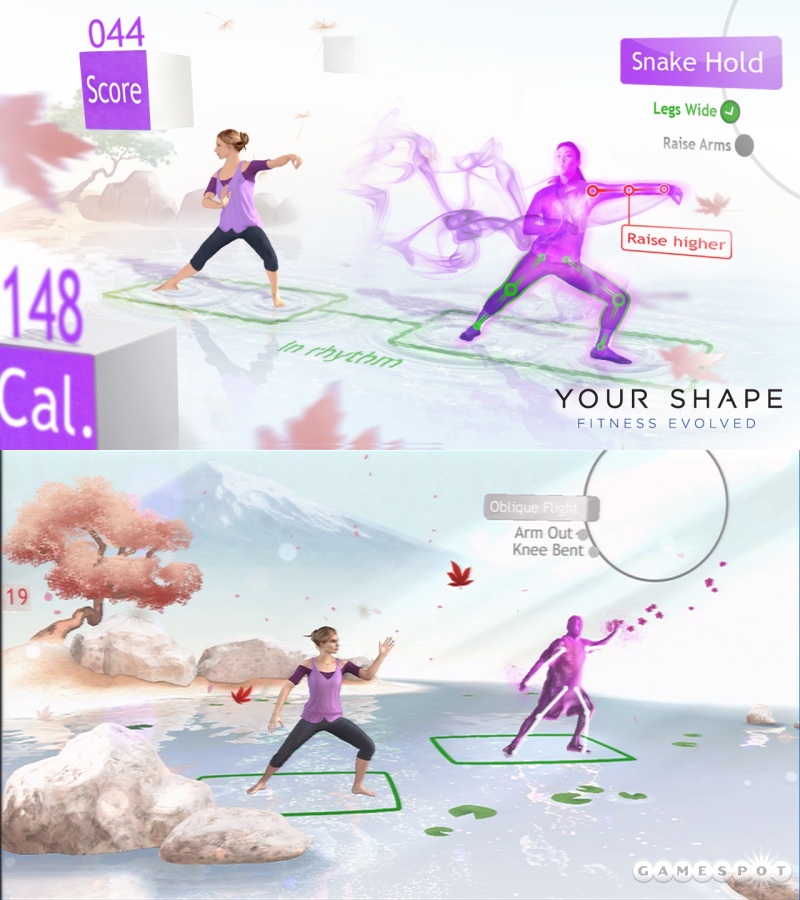The Hidden Messages in Video Games: Exergame Achievements
By Lobst 4 Comments

I just noticed something. Remember when Your Shape: Fitness Evolved got some buzz around the notion that it had an achievement for burning 10,000 calories in your ingame career? Well, as it turns out, The Biggest Loser: Ultimate Workout has an achievement for 2.5 times that much. Which isn't exactly shocking -- I bet there's going to be a Calorie Genocider achievement in Your Shape 3 next year -- but especially of note is how the two games present their calorie achievements.
Your Shape gives you achievements of escalating value leading up from 100 calories all the way to 10,000. They reward you 20G every 100 calories up to 1,000, then 25G every 200 calories up to 2,000, and from then it's a 50G achievement every 1,000 calories until the coveted 10,000. It gives you a persistent carrot-on-a-stick approach until you come away with 755 achievement points and a quarter-inch off your waistline, after which the game basically trusts you to keep up your personal plan without anything specific to motivate you.
Counter to this, Biggest Loser has five calorie-based acheivements: one for 1,000 calories, one for 2,500, one for 5,000, one for 10,000, and one for 25,000. Each of them are 10G -- they serve as milestones, and not rewards. "Yeah, we know; this flag we just popped up signifies that you just got rid of 7.14 pounds of raw fat. You're probably feeling the difference right now -- in fact, we're sure you are, especially if you've been following our nutrition advice -- but don't let that stop you; we're here for as long as is necessary for you to achieve your personal goals. Now COME ON; let's do some fuckin' leg-lifts! STEP IT UP, PEOPLE!" It also has a wider variety of achievements, based on criteria that seems mysterious and almost frightening to me. What the hell is a FIt Score? How do I WIn The Biggest Loser Competition? "Achieve Your Personal Goals"? But nobody has this yet! WHAT THE HELL
It's these traits, alongside the Quick Looks for each game, that make me more excited about Biggest Loser. It's a shame that EA Sports Active 2.0's Kinect version is reviewing poorly. Its achievements go for a hybrid approach -- giving you an achievement payload at 10,000 calories and rewarding you every step of the way on a 9-week program of your choice -- but also rewards you for some crazy stuff, convincing me that these games are all secretly training their players to be Kumite champions. (Maybe I'll pick it up on-discount specifically to get the 1,000 squats achievement over the course of a single day and sell it immediately afterward, just to get whoever's tracking this stuff to scratch their head.)

Log in to comment